

 |
 |
|
 |
|
| About Us |
|
Read Past Issues | Resources | Composer Links |
|
|
|
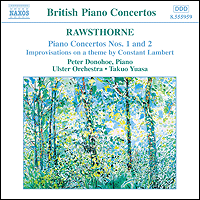
Piano Concertos Nos. 1 & 2 Composer: Alan Rawsthorne Performers: Peter Donohoe, Ulster Orchestra, Takuo Yuasa Naxos The complete package--two complex, important and demanding piano concertos by England's most underrated modernist, played to dazzling perfection by the world-class pianist Peter Donohoe. The chance of running into a treasure like this is why classical music collectors get up in the morning. |
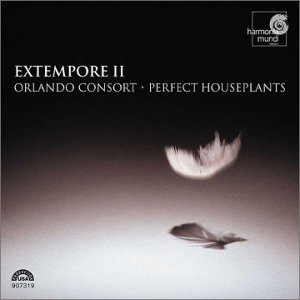
Extempore II A modern Mass for the Feast of St Michael based on the medieval melody L'homme armé Performers: Orlando Consort / Perfect Houseplants Harmonia Mundi Franc Jazz meets medieval and, for once, avoids a train record. This album is the second volume in a collaborative project between the Orlando Consort, a classical vocal ensemble, and British jazz quartet Perfect Houseplants . In both medieval classical music and jazz, improvisation is an essential skill and both groups exhibit lots of imagination.
|
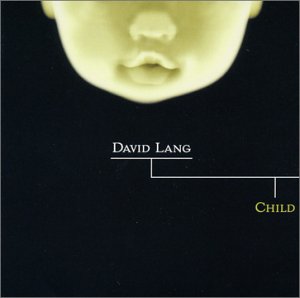
Child Composer: David Lang Conductor: Carlo Boccadoro Ensemble: Sentieri Selvaggi Cantaloupe A major new work for seven musicians, "Child" is a powerful meditation on childhood and memory. Sweet and simple on the surface, gentle musical fragments float by, leaving faint traces of darkness in their wake. The result is at once dramatic and personal, intensely introspective and piercingly beautiful. This is Lang's most controlled and complete work to date, pointing the way to a new maturity filled with enormous possibilities. Written in five separate parts for some of Europe's finest groups, "Child" is recorded here by the Italian ensemble Sentieri Selvaggi. |
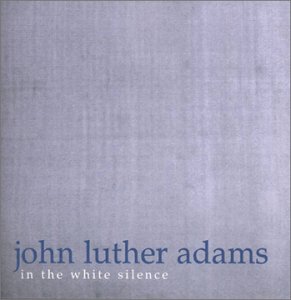
In the White Silence Composer: John Luther Adams Performer(s): Adams, Weiss, Oberlin Contemp Music Ens New World Records In the White Silence (1998) is an example of Adams' concept of "sonic geography," through which he attempts to realize the notion of music as place and place as music and reveals his obsession with the "treeless, windswept expanses of the Arctic" and specifically refers to Adams’s fascination with the color of white, a dominant feature of Arctic landscapes. As Adams explains in his preface to the score: "White is not the absence of color. It is the fullness of light. As the Inuit have known for centuries, and as painters from Malevich to Ryman have shown us more recently, whiteness embraces many hues, textures, and nuances." |
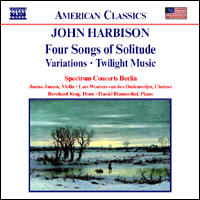
Four Songs of Solitude; Variations; Twilight Music Composer: John Harbison Performer: Janine Jansen, Lars Wouters van den Oudenwijer, et al. Naxos John Harbison was born in New Jersey in 1938 and is now established among the most prominent American composers, his output including symphonies, string quartets, and three operas. I find his music generally too gnarly by half but admire his technical abilities which are on sharp display in these well-performed chamber pieces.
|
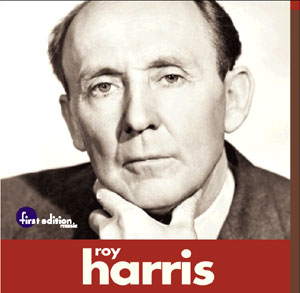
Symphony Number 5 Composer; Roy Harris Performers: The Louisville Orchestra. Robert S. Whitney, Lawrence Leighton Smith, conductors, Gregory Fulkerson, violin First Edition - #5 Roy Harris wrote 11 or 14 symphonies in his long career, depending on who's counting but only one of them remains treasured--the extraordinary one- movement, 18-minute Third Symphony, which is the statement the composer was born to make. Most of his odd-numbered symphonies are worth a listen and No. 5 just may be the best, after No. 3. |
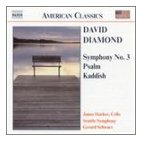
Symphony No. 3; Psalm, Kaddish Composer: David Diamond Conductor: Gerard Schwarz Performer: Janos Starker Naxos David Diamond is thought of as an American composer although he was trained largely in Europe and has spent much of his life in Italy. The glorious Psalm, completed in 1936, was Diamond's first successful orchestral score. The Fourth symphony, completed in 1945, is in four movements and is characterised by its strong rhythmic character, with a breezy scherzo and brilliant finale. Kaddish, completed in 1958, is dedicated to Janos Starker. It is an enormously powerful cry to heaven. |
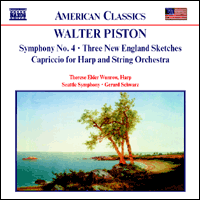
Symphony No. 4 Composer: Walter Piston Conductor: Gerard Schwarz Performer: Seattle Symphony, Therese Elder Wunrow Naxos Walter Piston achieved considerable success during his lifetime but his work is rarely played these days which is too bad since it is immediate and appealing and very "American." The Fourth Symphony dates from 1950, and incorporates an atmosphere of American folk music, especially in the bright finale. The three New England pieces are dark and brooding. This recording was first released on Delos in 1992. If you don't already have it, pounce. |
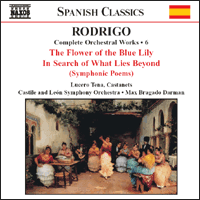
Orchestral Works 6 Composer: Joaquin Rodrigo Conductor: Max Bragado-Darman Performer: Lucero Tena Naxos For a guy who is basically famous for a single work, Rodrigo sure wrote a lot of sparkling, sunny, highly-listenable music. Not sure how many more of these Naxos has in the works but I'm not tired yet. |
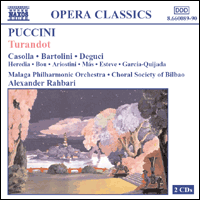
Turandot Composer: Giacomo Puccini Conductor: Alexander Rahbari Performer: Masako Deguci, Jose A. Garcia-Quijada, et al. Naxos Like a local wine consumed with good friends and good food not far from the vineyard, regional opera productions of famous operas often have a charm, passion, and character that befies their modest ambitions. This thoroughly charming rendering of Puccini's most hummable score is one of those unexpected delights. |
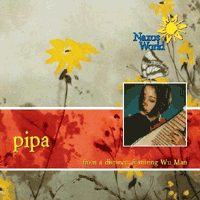
Pipa From a Distance Performer: Wu Man, Stewart Dempster, Abel Domingues Naxos In addition to being a rightous goodlooking babe, Wu Man is probably the best pipa player alive and here she takes on some thoroughly modern pieces with results that range from the soothing to the downright eerie. There are echos of Yo Yo Ma's Silk Road Project (for which Wu Man served as main pipa person) as well as hints of new traditions yet to come. |
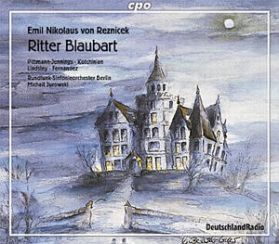
Ritter Blaubart Composer: Emil Nikolaus von Reznicek Conductor: Michail Jurowski Performer: Arutiun Kotchinian, Robert Worle, et al. Cpo Records Emil Nikolaus von Reznicek (1860-1945) is remembered for a single work, the overture to the opera Donna Diana but CPO hopes to change that with the release of his Ritter Blaubart (Knight Bluebeard), a fairy-tale opera. Gretry, Offenbach and Bartok were also drawn to the story of Bluebeard, the mythical figure who kills his faithless wife and then murders the other women he marries. Reznicek's version boasts music filled with atmosphere and keen drama. Conductor Michail Jurowski leads the Berlin Radio Orchestra and a cast of fine singers in a powerful performance. |

The Shock of the Old Composer: Common Sense Composers' Collective Santa Fe New Music - #513 Consider the possibility that ancient instruments like the harpsichord, Baroque flute and so on can be used to play contemporary music as well and you have the idea behind this very fresh and appealing collaboration between the Common Sense Composers' Collective--an eight-member cooperative based in New York and San Francisco--and American Baroque, an early-music consort that makes its home in the Bay Area. Remarkable stuff that should make converts on both ends of the musical spectrum. |
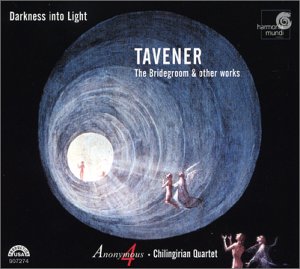
Darkness into Light Composer: Composer: John Tavener Performer: Anonymous 4 Harmonia Mundi Franc Four pieces by contemporary mystic composer John Tavener framed by medieval hymns illustrate the passage from darkness to light in this hypnotic collaboration between Anonymous 4 and the Chilingirian Quartet. The most substantial piece is the world premiere of Tavener's "The Bridgegroom," which is nearly 18 minutes long and spellbinding from start to finish.
|
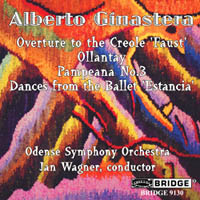
Overture to the Creole 'Faust' Ollantay, Pampeana No. 3 Dances from the Ballet, 'Estancia' Composer: Alberto Ginastera Performers: Odense Symphony Orchestra, Jan Wagner, conductor BRIDGE 9130 The nice folks at Bridge Records are obviously thinking Latin America these days with their recent fabulous Villa-Lobos release and now this superb collection of music from the great Argentine composer Alberto Ginaestera--played, as was the Villa-Lobos, by the Odense Symphony Orchestra under Jan Wagner. This is bold and flavorful music served fresh and hot--the way you like it. |
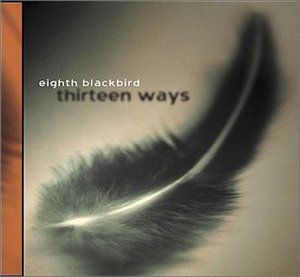
Thirteen Ways Composers: Tower, Perle, etc Performer(s): Eighth Blackbird You got to love a group that takes its name from one of Wallace Stevens' best poems but you'd love them if their name was Band X. This six-member ensemble mixes flutes, clarinets, violin and viola, cello, percussion and piano to create a big sound for chamber pieces. The composers here--Joan Tower, George Perle, David Schobar, and Thomas Albert--are all given polished and enthusiastic readings. Absolutely first-rate and highly recommended. |
 |
Search WWW Search www.sequenza21.com |
